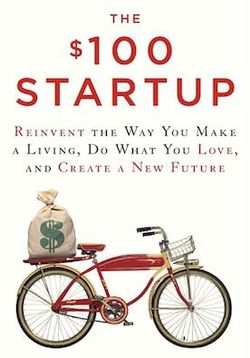I mentioned in the last edition that I would elaborate on why "being understood" is vital to recruiting and retention, and provide a way of thinking about it that will hopefully change your goal of the interview. But, before I lay out the key ingredients to hiring and retention, I want all of us to agree on what doesn't work.
Recruiting the best new agents requires a thorough understanding of how the best recruits think and reach decisions. It also requires an understanding of the natural conflict that occurs inside the minds of people further down the ladder of the recruiting pipeline…the people who are just beginning to ponder the possibility of becoming an agent.
 Many managers have told me, point blank, that they have no time to waste on someone who has trouble deciding if real estate is right for them. One manager said, "If I have to interview a person for more than 20 minutes, then the candidate isn't right for real estate." Here's another one I hear a lot: "If they don't have a license, then I'm not interested."
Many managers have told me, point blank, that they have no time to waste on someone who has trouble deciding if real estate is right for them. One manager said, "If I have to interview a person for more than 20 minutes, then the candidate isn't right for real estate." Here's another one I hear a lot: "If they don't have a license, then I'm not interested."
The managers who say this are immensely confident in their views. For the first few years that I partnered with companies in this industry, I naturally had to respect their views because I hadn't seen enough to gauge the accuracy, or fallacy, of what they were so convinced of.
But now I've gathered ample evidence to suggest that the above philosophy of interviewing new agent candidates rarely uncovers the best candidates. In many cases, this approach attracts the most desperate and insecure candidates, who fake cooperation and decisiveness just to get the approval of the impatient and narcissistic manager. Much like dating, ineffectual people are attracted to abusive partners.
Here's three statements that I believe have proven true:
- “You cannot fully predict who will be successful.”
- “The smartest candidates must be treated with the upmost success from the first encounter.”
- “The worst candidates are the most desperate, and are less likely to react aversely to rude and devaluing behavior by the manager.”
To continue the dating analogy… When you want to choose your (best) life partner, you assume that he/she will be understandably cautious and most likely not tolerate any sense of narcissism, correct?
Fortunately, most managers I've met genuinely want to know how to interview well. They are hungry to understand what's going on inside the minds of high-caliber people, but many have not discovered the secret sauce to attraction, and retention.
When it comes to interviewing the best candidates, you have to change your entire mindset. Interviewing well is counterintuitive to much of what many have been taught, such as selling features, selling the company, or selling yourself as a manager. As I mentioned in the last article, the most talented candidates want to be understood before hearing any of this. They don't want to listen to you drone on and on about yourself or your company.
In addition, the best fruit will probably not be low hanging. Any one of your competitors can find those folks–they're easy to find, but there is a finite number of them. We have droves of apple orchards in Washington State. If all the workers competed for the apples that had already dropped to the ground or that hung on the lowest branches, it might be easier work, but is it better? The answer is no. The best harvesters are those on ladders, working to get to the hardest to reach apples…the best apples.
The better companies will be willing to spend time and energy to attract the candidates who are already good at what they do, but happen to work in different industries. They will have the patience to court these people over several months of indecisiveness, licensing school, and occasional second thoughts? To repeat – The brightest and most motivated people will not say yes right away.
Who, among you, is willing to turn over enough rocks and do the necessary work to dislodge those hard to find diamonds? Doing this takes patience, consistent engagement, and finesse.
The finesse part is knowing how to talk to people who you suspect will become very good agents, but who might not be able to pull the trigger as fast as you'd like. This is often the hard part. How do you get them to arrive at "yes" without sounding like an impatient salesman? The brightest candidates will resist that pressure.
In part three of this discussion I promise to detail the "secret sauce" to interviewing, hiring and retention…It's called "Attachment through Attunement."
 Editor's Note: This article was written by Dr. David Mashburn. Dave is a Clinical and Consulting Psychologist, a Partner at Tidemark, Inc. and a regular contributor to WorkPuzzle. Comments or questions are welcome. If you're an email subscriber, reply to this WorkPuzzle email. If you read the blog directly from the web, you can click the "comments" link below.
Editor's Note: This article was written by Dr. David Mashburn. Dave is a Clinical and Consulting Psychologist, a Partner at Tidemark, Inc. and a regular contributor to WorkPuzzle. Comments or questions are welcome. If you're an email subscriber, reply to this WorkPuzzle email. If you read the blog directly from the web, you can click the "comments" link below.













